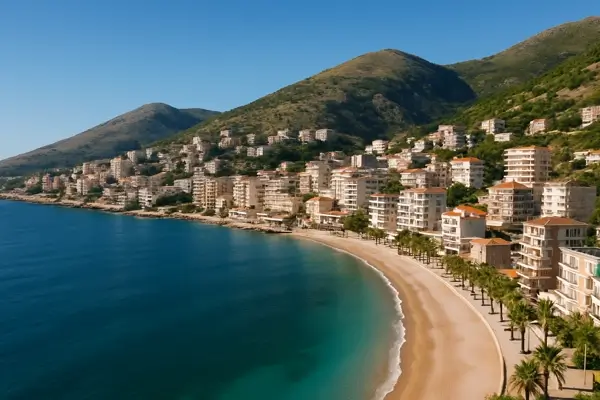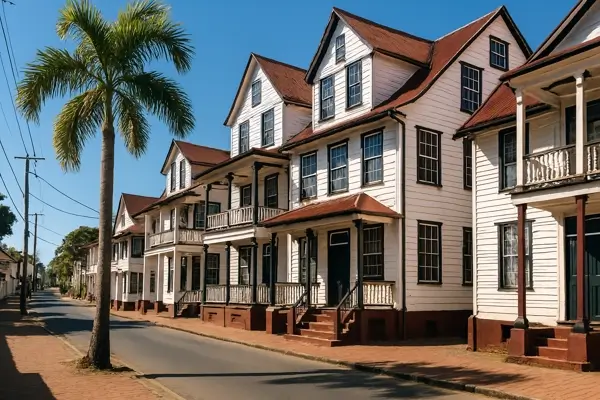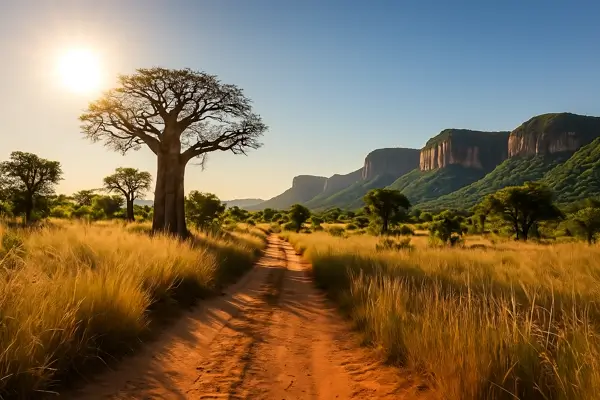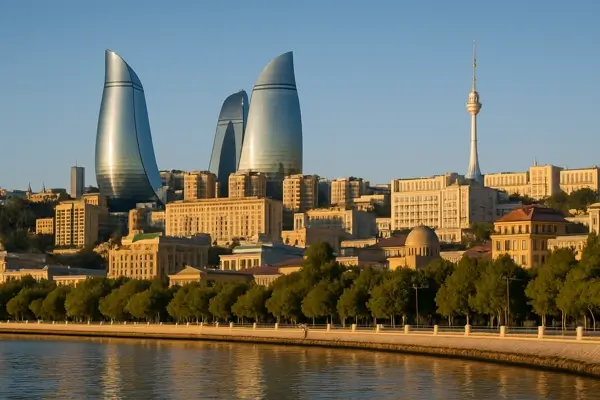
A Land of Unique Wildlife
Albania is known for its stunning and diverse landscapes, ranging from the rugged mountains of the north to the pristine beaches along the Ionian and Adriatic seas. The country is home to lush forests, vast lakes, and dramatic coastlines, making it a hidden gem for nature lovers and adventure seekers.
A Rich Ancient History
Albania has a rich history that dates back thousands of years. It was home to the Illyrians, one of the ancient peoples of Europe, and later became part of the Roman Empire. The UNESCO World Heritage site of Butrint is a testament to this long history, featuring ancient ruins from Greek, Roman, Byzantine, and Ottoman periods.
Home to One of the Oldest Languages
The Albanian language, which belongs to the Indo-European language family, is one of the oldest languages still spoken today. The language has a unique history, and its roots are deeply connected to the ancient Illyrian language, making it one of the most distinct languages in Europe.
The Birthplace of Mother Teresa
Mother Teresa, one of the most iconic figures in modern history, was born in Skopje, Macedonia, to Albanian parents. Her family hailed from the Albanian region of Kosovo, and she is a source of immense pride for Albanians, whose humanitarian work left a profound impact on the world.
A Country with a Rich Cultural Heritage
Albania has a vibrant cultural heritage, with influences from the Illyrians, Greeks, Romans, Ottomans, and others. The country's art, music, and folklore reflect this mix of cultures. Traditional Albanian music, which often features the distinctive "iso-polyphony" singing style, is recognized by UNESCO as part of the Intangible Cultural Heritage of Humanity.
The Albanian Riviera
The Albanian Riviera is a stretch of coastline along the Ionian Sea, known for its crystal-clear waters and unspoiled beauty. Towns such as Dhermi, Jale, and Himara boast golden sandy beaches, perfect for relaxation or water sports. The Albanian Riviera remains relatively unexplored compared to other Mediterranean destinations, making it an ideal spot for travelers seeking tranquility.
Breathtaking Lakes
Albania is home to several picturesque lakes, the largest of which is Lake Shkodra, shared with Montenegro. The lake is surrounded by dramatic mountain scenery and is an important habitat for bird species. Other notable lakes include Lake Pogradec, situated on the shores of the town of the same name, and the artificial Lake of Prespa, which is a key source of water for the region.
Albanian Cuisine
Albanian cuisine is heavily influenced by Mediterranean, Turkish, and Italian flavors. Popular dishes include byrek (a savory pastry filled with meat, cheese, or vegetables), tavë kosi (a lamb dish baked with yogurt and eggs), and fërgesë (a pepper and cheese stew). Olive oil, fresh vegetables, and herbs play a central role in many Albanian dishes.
A Communist Past
Albania was a communist state from 1946 to 1991 under the leadership of Enver Hoxha. During this time, Albania became one of the most isolated countries in the world, with strict restrictions on travel, communication, and trade. The country has since undergone significant political and economic changes, transitioning to a parliamentary democracy and market economy.
A Country of Bunkers
Under the communist regime, Enver Hoxha ordered the construction of hundreds of thousands of bunkers throughout the country. These small, concrete structures were designed to defend against foreign invasion. While most of these bunkers have now fallen into disrepair or been repurposed, they remain a peculiar and lasting reminder of Albania's past.
The Llogara Pass
The Llogara Pass is a breathtaking mountain pass that runs through the Ceraunian Mountains along the Albanian Riviera. Known for its panoramic views of the Ionian Sea, it is a popular destination for travelers seeking stunning natural landscapes. The road to the pass offers dramatic views of cliffs, forests, and the sparkling waters below.
A Mediterranean Climate
Albania has a Mediterranean climate, characterized by hot, dry summers and mild, wet winters. This climate allows for the growth of a variety of crops, including olives, grapes, citrus fruits, and vegetables. The country’s favorable climate and fertile land make it an ideal location for agriculture.
The Apollonia Archaeological Park
Apollonia was once an ancient Greek city located in central Albania. Today, the Apollonia Archaeological Park is an important site for visitors interested in ancient history and culture. The park contains well-preserved ruins, including a theater, temples, and ancient streets, providing a glimpse into Albania’s rich Greco-Roman past.
A Country of UNESCO Sites
Albania boasts several UNESCO World Heritage sites, including the ancient city of Butrint, the medieval city of Gjirokastër, and the Church of St. Mary at Vithkuq. These sites reflect Albania’s historical and cultural significance in the region and attract visitors from all over the world.
Albania’s Unique Religious Diversity
Albania is one of the few countries where a harmonious blend of religious beliefs coexists. It has a mix of Muslims (both Sunni and Shia), Eastern Orthodox Christians, and Roman Catholics. Albania’s religious tolerance is a key aspect of its culture, and the country is known for its secular government and peaceful coexistence of different faiths.



